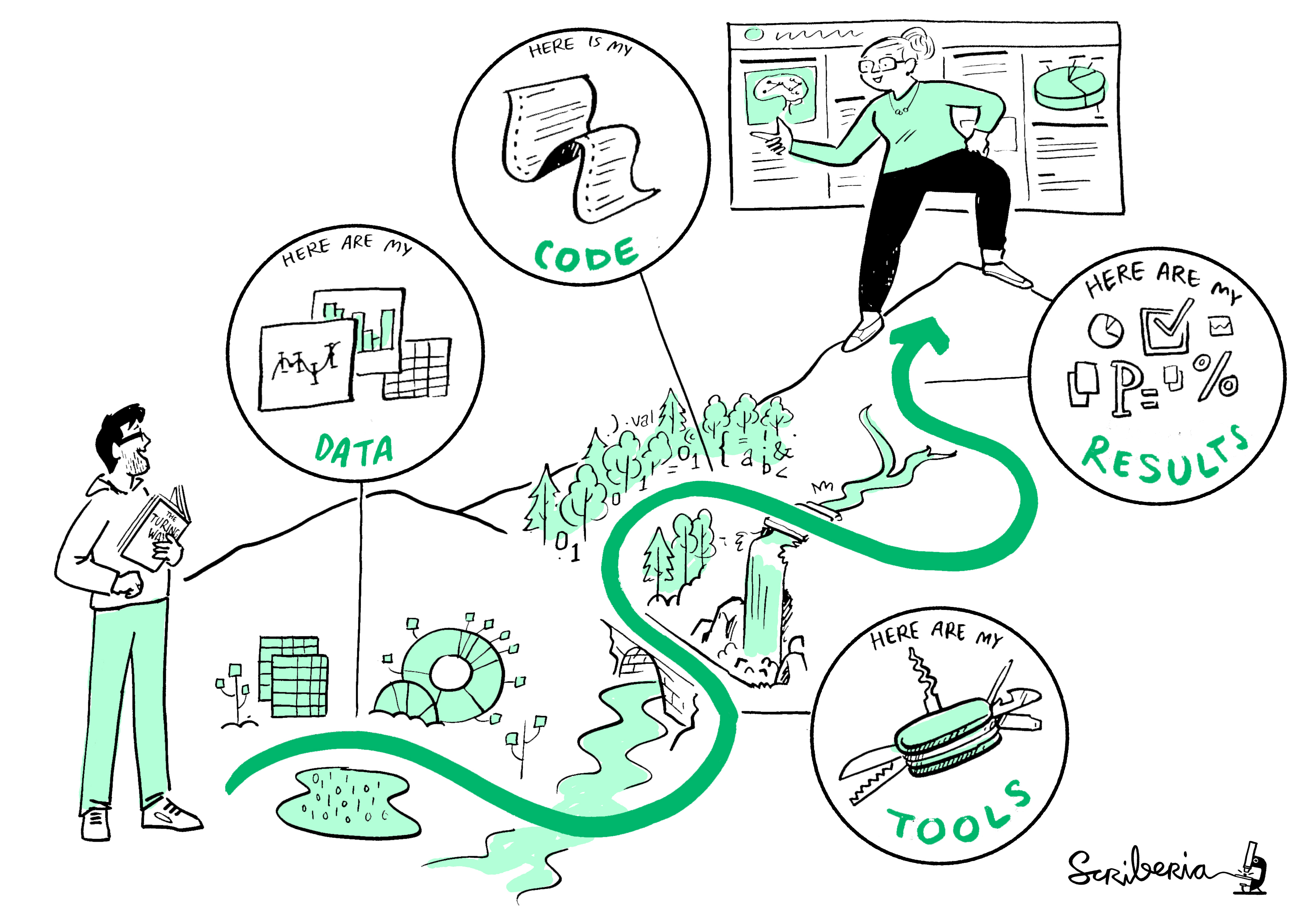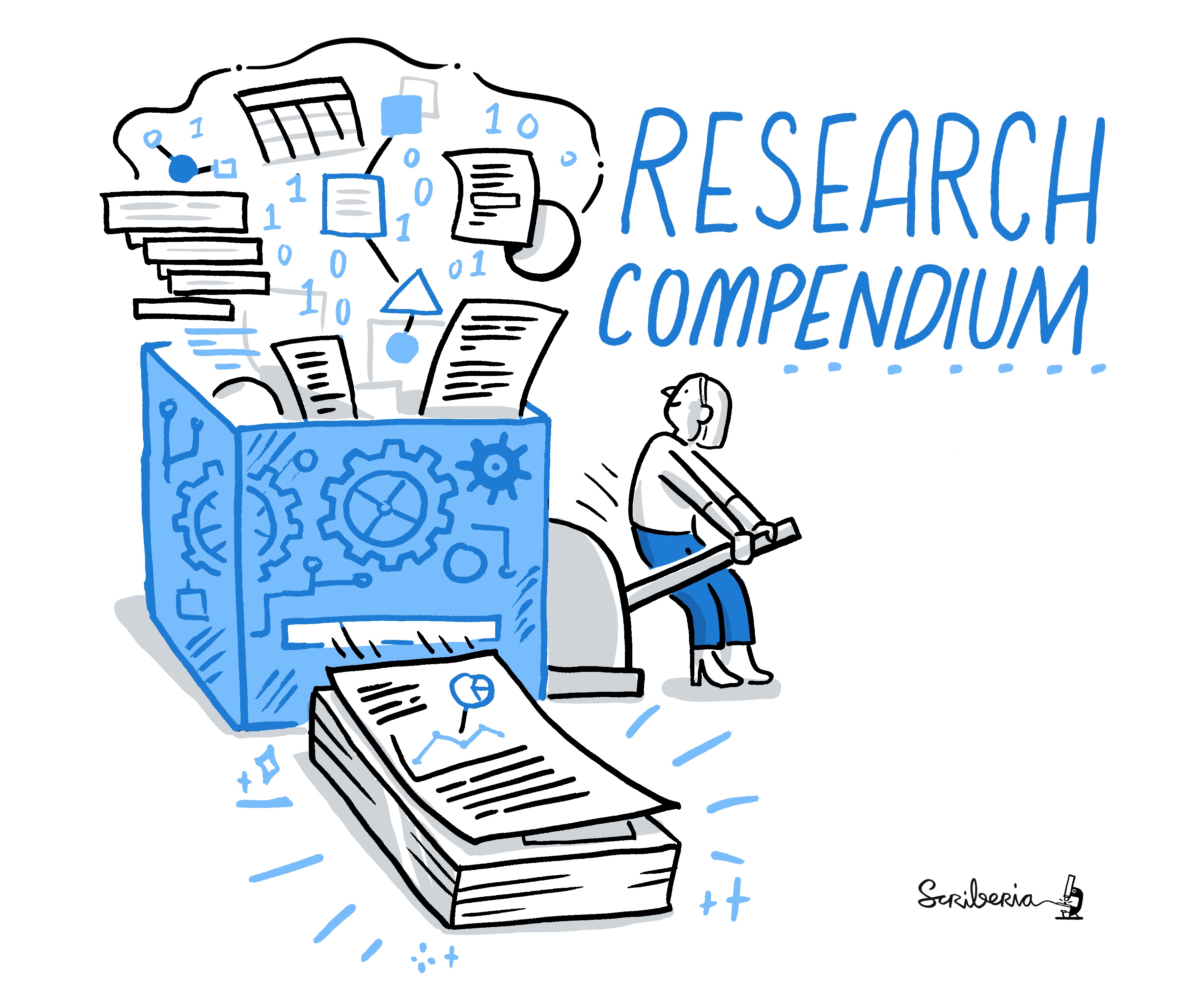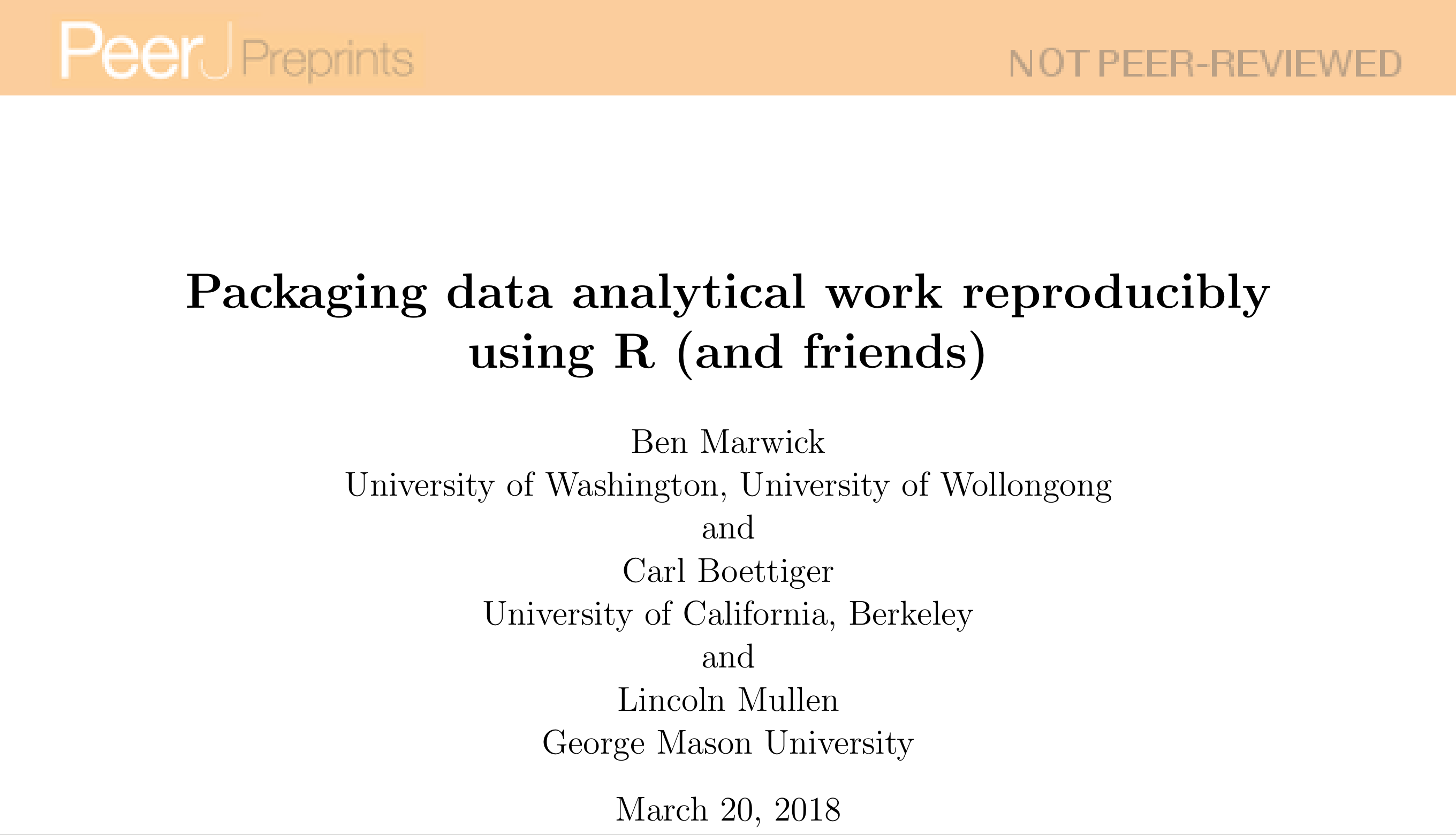Workshop overview
Motivation

This image was created by Scriberia for The Turing Way community and is used under a CC-BY licence (DOI 10.5281/zenodo.3332807).
Two main topics
- Research compendia
- R packages
- Code on github https://github.com/selinaZitrone/YoMos2020
- Slides on https://selinazitrone.github.io/YoMos2020/index.html




